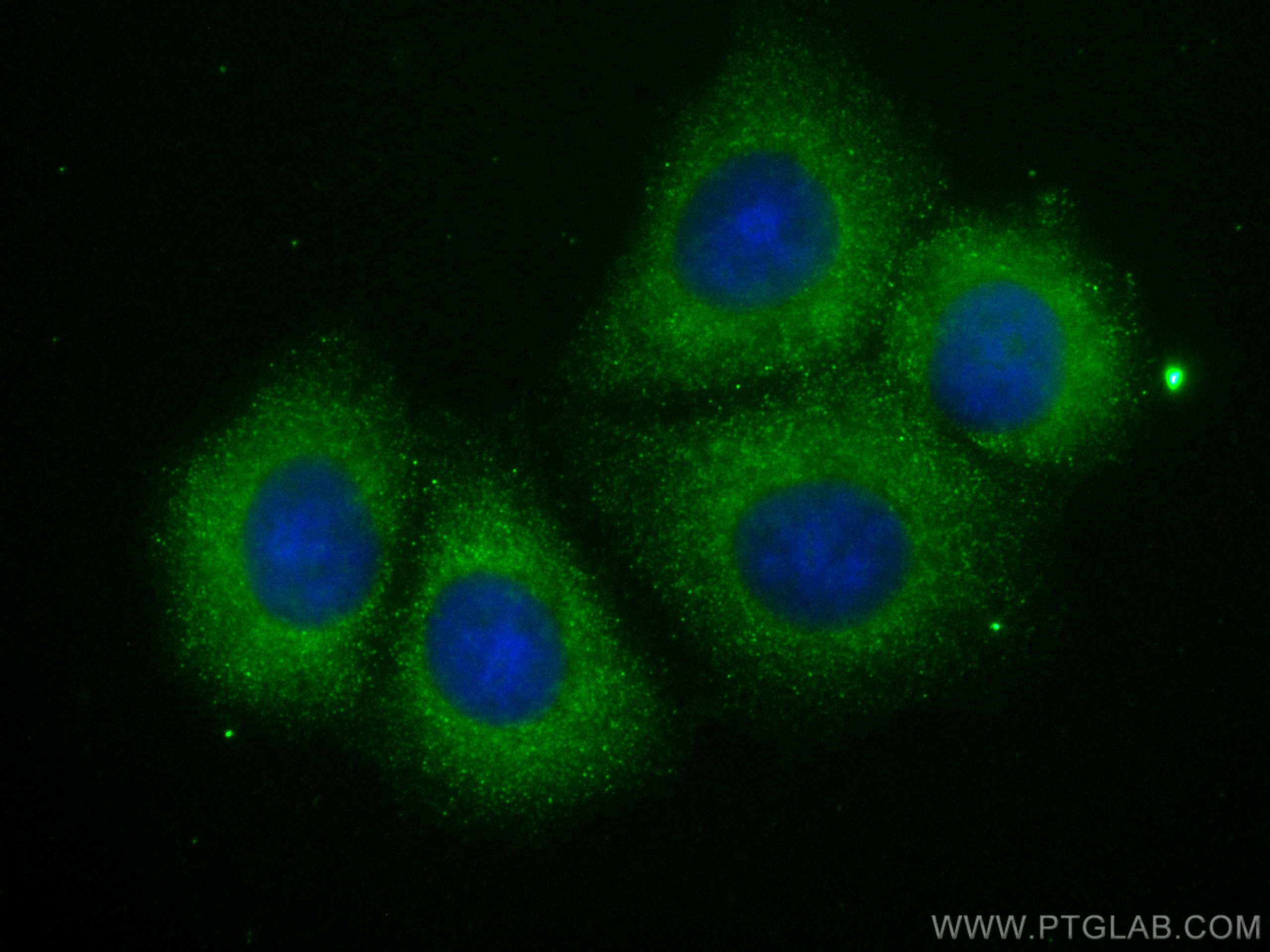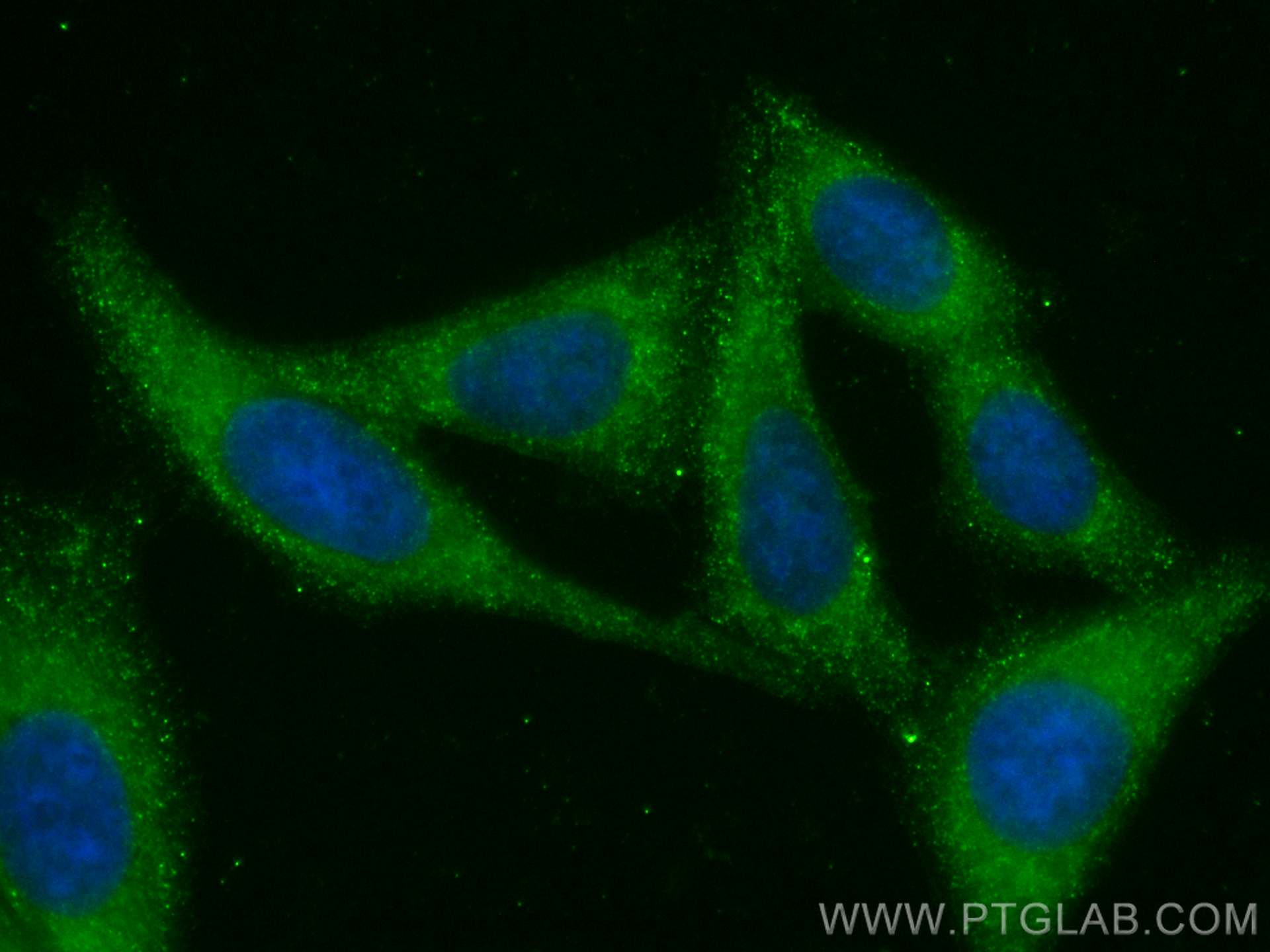Anticorps Monoclonal anti-ABL1
ABL1 Monoclonal Antibody for IF
Hôte / Isotype
Mouse / IgG2b
Réactivité testée
Humain
Applications
IF
Conjugaison
CoraLite® Plus 488 Fluorescent Dye
CloneNo.
1E7A5
N° de cat : CL488-68254
Synonymes
Galerie de données de validation
Applications testées
| Résultats positifs en IF | cellules HepG2, cellules MCF-7 |
Dilution recommandée
| Application | Dilution |
|---|---|
| Immunofluorescence (IF) | IF : 1:50-1:500 |
| It is recommended that this reagent should be titrated in each testing system to obtain optimal results. | |
| Sample-dependent, check data in validation data gallery | |
Informations sur le produit
CL488-68254 cible ABL1 dans les applications de IF et montre une réactivité avec des échantillons Humain
| Réactivité | Humain |
| Hôte / Isotype | Mouse / IgG2b |
| Clonalité | Monoclonal |
| Type | Anticorps |
| Immunogène | ABL1 Protéine recombinante Ag26152 |
| Nom complet | c-abl oncogene 1, receptor tyrosine kinase |
| Masse moléculaire calculée | 123 kDa |
| Poids moléculaire observé | 140 kDa |
| Numéro d’acquisition GenBank | NM_005157 |
| Symbole du gène | ABL1 |
| Identification du gène (NCBI) | 25 |
| Conjugaison | CoraLite® Plus 488 Fluorescent Dye |
| Excitation/Emission maxima wavelengths | 493 nm / 522 nm |
| Forme | Liquide |
| Méthode de purification | Purification par protéine A |
| Tampon de stockage | PBS avec glycérol à 50 %, Proclin300 à 0,05 % et BSA à 0,5 %, pH 7,3. |
| Conditions de stockage | Stocker à -20 °C. Éviter toute exposition à la lumière. Stable pendant un an après l'expédition. L'aliquotage n'est pas nécessaire pour le stockage à -20oC Les 20ul contiennent 0,1% de BSA. |
Informations générales
ABL1, also named as ABL, JTK7, c-ABL and p150, belongs to the protein kinase superfamily, Tyr protein kinase family and ABL subfamily. ABL1 regulates cytoskeleton remodeling during cell differentiation, cell division and cell adhesion. ABL1 localizes to dynamic actin structures, and phosphorylates CRK and CRKL, DOK1, and other proteins controlling cytoskeleton dynamics. It regulates DNA repair potentially by activating the proapoptotic pathway when the DNA damage is too severe to be repaired. ABL1 catalyze the reaction: ATP + a [protein]-L-tyrosine = ADP + a [protein]-L-tyrosine phosphate. A chromosomal aberration involving ABL1 is a cause of chronic myeloid leukemia (CML) [MIM:608232]. Translocation t(9;22)(q34;q11) with BCR. The translocation produces a BCR-ABL found also in acute myeloid leukemia (AML) and acute lymphoblastic leukemia (ALL). The antibody is specific to ABL1.
Protocole
| Product Specific Protocols | |
|---|---|
| IF protocol for CL Plus 488 ABL1 antibody CL488-68254 | Download protocol |
| Standard Protocols | |
|---|---|
| Click here to view our Standard Protocols |



